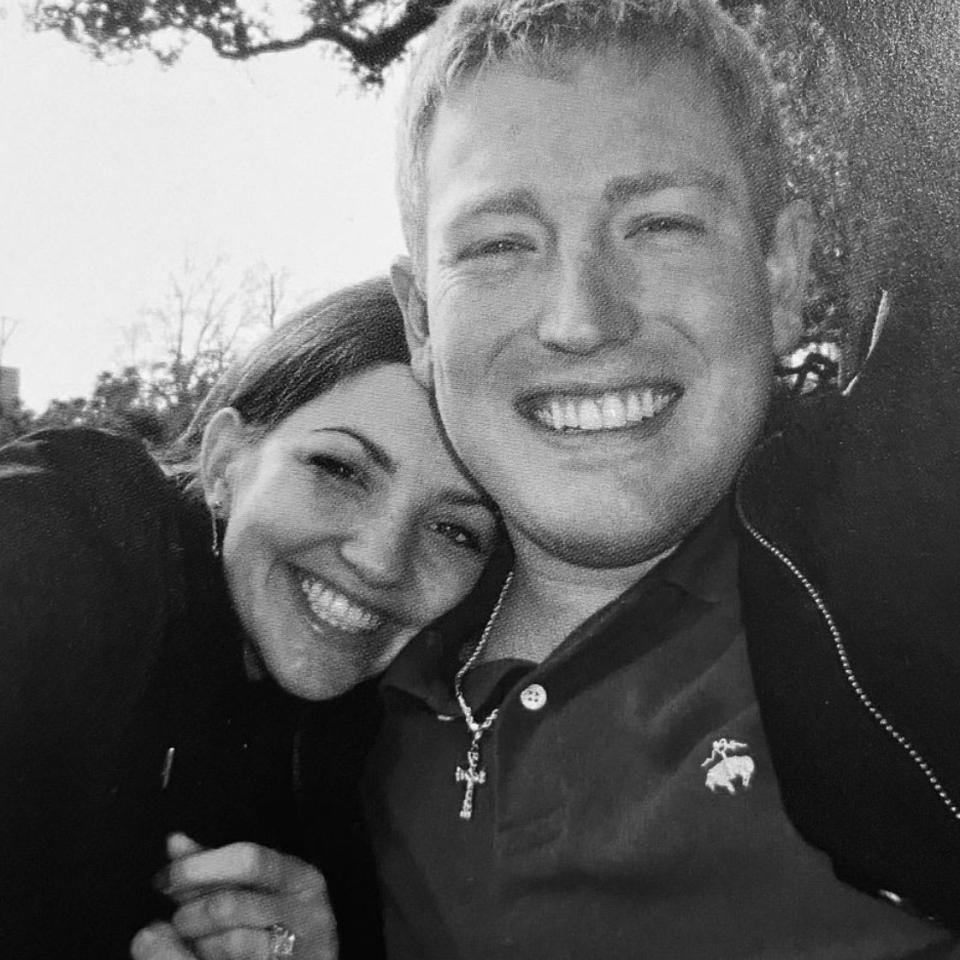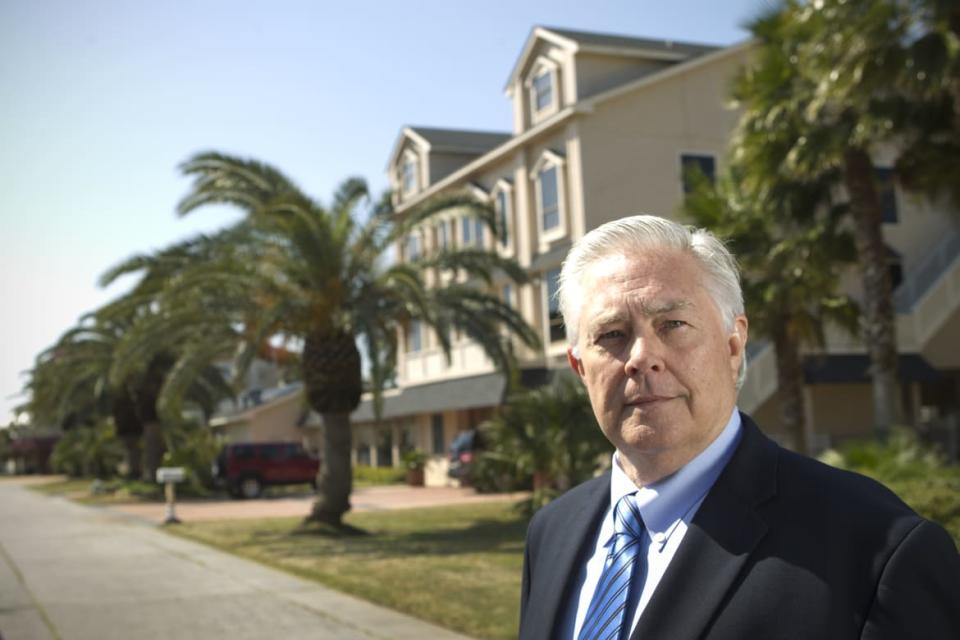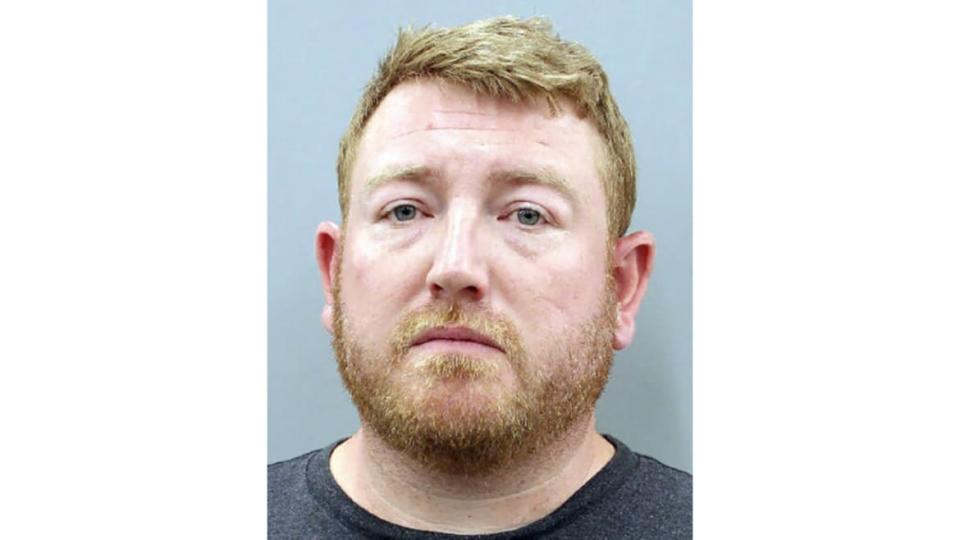Texas Woman Reveals How She Caught Hubby Poisoning Her With Abortion Drug

When Catherine Herring’s husband Mason brought her breakfast in bed one day in April 2022, she wanted to believe it was a romantic gesture. The pair had been fighting—they were currently living apart at his request—but were in marriage counseling, hoping to work things out.
She had recently learned that she was pregnant with their third child, and their counselor suggested spending spring break together to process. They had spent the last week snuggled up on the couch, watching movies and saying “I love you,” Herring said. So when the breakfast tray came in, she wanted to assume the best.
But Herring says she sensed something was off. Along with a biscuit, her husband brought her a tall glass of water that he urged her to finish, telling her she needed to hydrate more for the pregnancy. As the minutes went on, he became more and more forceful—almost angry—pushing her to finish the water before he left for the office.
“He starts urging me, like, ‘Chug it, I need to go,’ and he kind of had anger in his voice,” she told The Daily Beast.
“All of a sudden I was like, ‘Something weird is going on,’” she added. “And that’s when I looked down into the cup and saw that the water wasn’t clear.”
What Herring found in that cup would catapult her and her now-estranged husband into the headlines and raise questions about how men and women are treated under Texas abortion laws. But the full story of how she uncovered her husband’s secret—how she collected evidence and mounted a case right under his nose—is even more breathtaking than court documents and previous news coverage suggest.

Catherine and Mason Herring on the day they got engaged.
Herring, 39, was born and raised in Shreveport, Louisiana and attended college in Texas, where she met her future husband through mutual friends in his law school class. The two got married in 2010 and moved into a quiet, verdant Houston neighborhood, where they soon had two children. Mason established a successful personal injury law firm while Herring stepped down from her job as a nonprofit executive to raise the kids, working as a grant writer on the side.
A life-long painter, Herring also ran a small business selling hand-painted stationery: cards and gift tags emblazoned with cheery watercolor flowers and colorful pumpkins. On her business Instagram she posted photos of her husband and kids, the four of them forming the perfect picture of a happy, well-adjusted family.
“I always knew you’d be a great Dad,” she wrote in one post, alongside a photo from their first month of dating. “What I didn’t know then… was how special it would be to see how much our kids ADORE you … We are grateful for everything you do for us and hope you have a wonderful Father’s Day!!!”
But in February 2022, after more than a decade of marriage, Herring says, her husband suddenly informed her he wanted a separation. She had recently caught him lying about his whereabouts and texting a former female colleague with whom he claimed to have cut contact, she later told police officers. When she confronted him about the situation, she told The Daily Beast, he told her he needed to work on himself and moved out. “He just started acting really weird and wouldn’t tell me what was going on,” she recalled.
Still, Herring thought he was committed to salvaging the marriage. He was unhappy about the pregnancy—in a personal statement filed in their divorce case, Herring says he told her he “wanted a divorce and would look like a jerk for leaving me when I was pregnant”—but agreed to spend spring break with her and the kids. Despite their issues, she said, she believed they would make it work.
Then came breakfast in bed.
About 30 minutes after Mason left for work that day, Herring began having painful stomach cramps and explosive diarrhea, according to an indictment filed by the Harris County District Attorney’s Office. On her third trip to the bathroom, she realized she was bleeding heavily from her vagina, like she had her period. Fearing she had been poisoned, Herring rushed to the emergency room, where the urine sample she gave was almost black, she told later police. She kept bleeding even after she left the hospital that night.
Unnerved, Herring called her mother and asked her to stay with her, saying she was having pregnancy complications but never revealing her true fear: that her husband was behind her medical crisis.
“I just wanted desperately to be wrong,” she told The Daily Beast. “I wanted there to be another explanation, because this is your husband who you love and adore and have children with.”
“But my instinct was, ‘Something’s wrong, I need to protect myself,’” she added. “And I just need to make sure he doesn’t know I’m onto him. Because I really felt like that was the only way I could collect evidence.”

Catherine and Mason Herring on their wedding day.
When Herring returned home from the hospital, her husband continued plying her with more drinks, all of them containing an “unknown substance,” according to the indictment. (A memorable example, Herring said: a bottle of orange juice had its seal broken and a powdery substance at the bottom.) She did not drink any more of the beverages, but stashed the cups and bottles away for safekeeping.
On March 21, she brought them all to a private investigator she had hired a week before her hospitalization in hopes of figuring out why her husband had suddenly requested a separation.
“I walked into the PI’s office and I said, ‘Something weird is going on,’” she said. “And he just snapped into action.”
The PI, a former state tax fraud investigator named John Moritz, sent the containers to a lab for testing. While they waited for the results, and her husband went on vacation, Moritz taught Herring about collecting evidence. They installed video cameras on her doorbell, along the exterior of the house, even in the air ducts of the kitchen. Moritz urged her not to be alone with her husband; to keep friends and family around whenever he was in the house.
As soon as Mason returned from vacation, so did the drinks. He handed one of them to her in front of two friends she had invited over for a “meeting,” even though she had already had two beverages in front of her. Both friends observed the familiar “unknown substance” floating in the one he brought, she told police.
The cameras in front of the house also turned up something suspicious. On April 24, Mason cleaned out his truck and brought the trash bags to the curb—something Herring dryly told police was “out of character… because he does not do chores around the house.” When she looked through the bags, she found something that made her shudder: a blister pack of Cyrux, a generic version of misoprostol, the drug most commonly used to induce an abortion.
Two days later, the cameras in her kitchen air ducts caught Mason taking out a plastic baggie full of white powder, removing the substance, and putting it into her drink. She had a friend with her that night, to avoid being alone with him, she said. “But he just stood in the kitchen, had a whole conversation with us, and then left for the night as if nothing had gone on.”
The next day, she went to the Houston Police Department.

Private Investigator John Moritz
Texas has some of the strictest abortion laws in the United States, many of them on the books even before the U.S. Supreme Court decision overturning Roe v Wade. A 2021 law allows anyone in the state to sue someone they suspect of performing or “abetting” an abortion after six weeks’ gestation. Since the fall of Roe, performing an abortion has been a felony punishable by life in prison.
While the law allows for exceptions for life-threatening medical emergencies, doctors worry about performing abortions in such cases, for fear of losing their medical license or going to jail. More than 20 women have sued the state of Texas, claiming doctors denied them an abortion during life- or health-threatening pregnancies.
Attorney General Ken Paxton has made it clear that prosecuting abortions is a priority. He personally vowed to prosecute any doctor who performed on abortion on a 31-year-old woman who asked the state to let her terminate her high-risk pregnancy last year, and later convinced the state Supreme Court to block her from receiving the procedure, forcing her to travel out of state.
Paxton has targeted abortion pills like misoprostol, strongly cautioning manufacturers and major pharmacies not to distribute the drugs in Texas. Last February, he sued the Department of Health and Human Services for directing pharmacies to continue supplying the drugs for other conditions like autoimmune disorders. He declared that Texas had “dutifully passed laws to protect the unborn,” and that the state was “not going to back down just because unelected bureaucrats in Washington want to create illegal, extremist federal policies.”
But when Herring told Houston Police that she believed her husband was trying to force an abortion pill on her against her will, it took nearly a month for an arrest. She felt more encouraged after speaking with then-District Attorney Anthony Osso, who seemed eager to prosecute, she said. He gave interviews to local media about the arrest—the first in Harris County under a 2017 “felony assault to induce abortion” statute—and called her husband’s actions “a pretty heinous act.”
But a few months later, the DA’s office told Herring that Osso would no longer be on the case because he was leaving for the private sector—specifically, for Cogdell Law, the firm defending her husband.
The move struck Herring as odd. “He was the face of the case, he was the one speaking to the media about it just a few months before,” she said. “[I thought], ‘That seems weird.’”
Osso said in an email that he and Cogdell “always kept discussions on the case separate from any discussions of working together,” and that he “never made any substantive decisions about the case after [those discussions started.” He added in a phone call that he had never made recommendations about a sentence or punishment for Mason while at the DA’s office.

Mason Herring’s booking photo
From there, Herring says now, it felt like her case got “lost in the paper shuffle.” Her daughter was born in August, three months after the arrest, and Herring dedicated much of her time to caring for her. The girl was born 10 weeks premature, weighing just over three pounds—so small that Herring was not allowed to hold her—and spent seven weeks in the NICU. She still uses a feeding tube to eat and has weekly appointments with physical, occupational, and speech therapists. “She is a special needs child,” Herring said. “Every day is a struggle for her. This impacts us on a daily basis, even now.”
In late 2023, the DA’s office called Herring to say they were considering a plea deal for her husband with significantly reduced charges. She says she tried to push back, but the office “just kept telling me this was the best they could do.” She even had her divorce lawyers write a letter to the judge, saying: “To be clear, Ms. Herring does not think probation is an appropriate offer given the homicidal actions of the Defendant and the life-altering consequences of his attempts to poison her child.” It made no difference.
On Feb. 7, Mason accepted the deal. Prosecutors dropped the charges of assault to induce abortion charge and assault on a pregnant person; he pleaded guilty to a single count of injury to a child under 15. The judge sentenced him to 180 days in jail and 10 years parole and barred him from contacting Herring or their youngest daughter.
Herring, who filed for divorce shortly after the arrest, assailed the court in a blistering victim impact statement that was picked up by news outlets across the country. “I do not believe that 180 days is justice for attempting to kill your child seven separate times,” she said, according to the Associated Press. (Her husband’s attorney called the sentence reasonable, and said: “It’s a sad situation and Mason has accepted his responsibility.”)
In an interview this week, Herring was just as angry. “One hundred and eighty days—it’s less than 26 days per attempt that he will serve in jail,” she said. She was reluctant to discuss the abortion politics of the decision—the topic “can be really polarizing,” she said—but when asked about the discrepancy between what a doctor in Texas could serve for performing a wanted abortion and what her ex is serving for attempting to force one on her, she did not hold back.
“It’s very apparent that the state of Texas is treating men and women differently in this situation,” she said.
“I think the impactful conversation that’s coming out of all this is that we all universally think this assault and this situation is wrong,” she added. “And it’s just silence from the state. Silence.”
Women’s rights advocates also pointed to the vastly longer sentences women have served for similar offenses. Dana Sussman, executive director of the nonprofit Pregnancy Justice, noted that women have spent years in prison for attempting their own abortions or for using drugs or alcohol while pregnant.
Purvi Patel, a now 44-year-old woman from Indiana, was famously convicted of feticide for taking abortion-inducing drugs and served three years in prison before her sentence was overturned. Just one month before Mason Herring was arrested, prosecutors in nearby Rio Grande City charged now 28-year-old Lizelle Herrera with murder for attempting her own abortion, although the charges were dropped after national outcry.
Sussman told The Daily Beast that conservative prosecutors often use charges like attempted murder or manslaughter in such cases. Her organization recently helped win release for a woman who was convicted of manslaughter and sentenced to 12 years in prison for a stillbirth after testing positive for drugs. A recent Pregnancy Justice report found 1,379 pregnant people were arrested between 2006 and 2022—a quarter for using legal substances like prescription opiates, alcohol, and nicotine.
Not only did many of these women face harsher sentences than Mason Herring, Sussman said, they had not committed any acts of violence against another person.
“These are their own bodies, this is their own existence,” she said. “They’re not doing something that is not consented to by someone else, that is abusive or harmful to anyone else.”
Even Osso, the former district attorney who first brought the case, said he could see the hypocrisy in the sentence. Six months of jail time is standard for a first defender charged with a third-degree crime, he said, but “the crime itself is very jarring.”
“The [Texas] legislature is very caught up in telling women what to do with their bodies, and here is a man who’s doing the same thing but way worse—and not his own body—and it feels like a slap on the wrist,” he said.
Herring is still angry with the sentence her ex-husband received, but lately she has started turning her attention to more hopeful avenues.
“All I can do is speak up for victims of domestic violence and call out injustice, and I’m happy to lend my voice if I can,” she said.
“I can’t change anything now, but I just hope that no one should ever have to go through this again.”
Get the Daily Beast's biggest scoops and scandals delivered right to your inbox. Sign up now.
Stay informed and gain unlimited access to the Daily Beast's unmatched reporting. Subscribe now.


